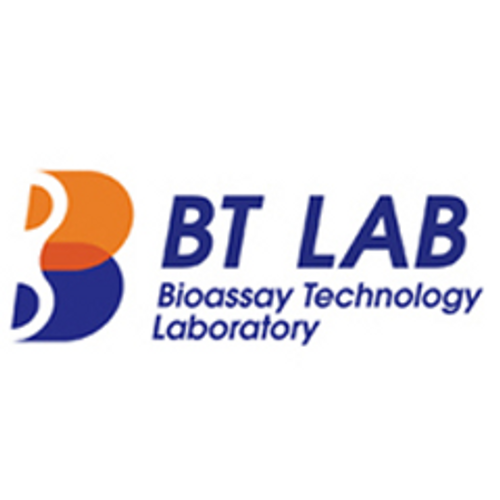Product Description
Human Procalcitonin (PCT) ELISA Kit | AE28338HU | Abebio
Species Reactivity: Human (Homo sapiens)
Abbreviation: PCT
Alternative Name: N/A
Application: ELISA
Range: 31.25-2000 pg/mL
Sensitivity: 12.7 pg/mL
Intra-Assay: ≤5.9%
Inter-Assay: ≤9.5%
Recovery: 0, 95
Sample Type: Serum, Plasma, Other biological fluids
Detection Method: Sandwich
Analysis Method : Quantitive
Test Principale: This assay employs a two-site sandwich ELISA to quantitate PCT in samples. An antibody specific for PCT has been pre-coated onto a microplate. Standards and samples are pipetted into the wells and anyPCT present is bound by the immobilized antibody. After removing any unbound substances, a biotin-conjugated antibody specific for PCT is added to the wells. After washing, Streptavidin conjugated Horseradish Peroxidase (HRP) is added to the wells. Following a wash to remove any unbound avidin-enzyme reagent, a substrate solution is added to the wells and color develops in proportion to the amount of PCT bound in the initial step. The color development is stopped and the intensity of the color is measured.
Product Overview: Procalcitonin (PCT) is a 116 amino acid residue peptide with molecular weight of about 13 kDa. PCT itself has no known hormonal activity. PCT belongs to a group of related proteins including calcitonin gene-related peptides I and II, amylin, adrenomodulin and calcitonin (CAPA peptide family) . PCT, like other peptides of CAPA family, appears from the common precursor pre-procalcitonin consisting of 141 amino acids by removal of 25 amino acids from the N-terminus. PCT undergoes successive cleavages to form three molecules: N-terminal fragment (55 a.a.), calcitonin (32 a.a.) and katacalcin (21 a.a.) . Under normal metabolic conditions, PCT is only present in the C cells of the thyroid gland. In bacterial infection and sepsis, however, intact PCT is found in the blood and, more importantly, its level is related to the severity of bacterial sepsis. Today, PCT is considered to be one of the earliest and most specific markers of sepsis
Stability: The stability of ELISA kit is determined by the loss rate of activity. The loss rate of this kit is less than 5% within the expiration date under appropriate storage condition. The loss rate was determined by accelerated thermal degradation test. Keep the kit at 37°C for 4 and 7 days, and compare O.D.values of the kit kept at 37°C with that of at recommended temperature. (referring from China Biological Products Standard, which was calculated by the Arrhenius equation. For ELISA kit, 4 days storage at 37°C can be considered as 6 months at 2 - 8°C, which means 7 days at 37°C equaling 12 months at 2 - 8°C) .
 Euro
Euro
 USD
USD
 British Pound
British Pound
 NULL
NULL








